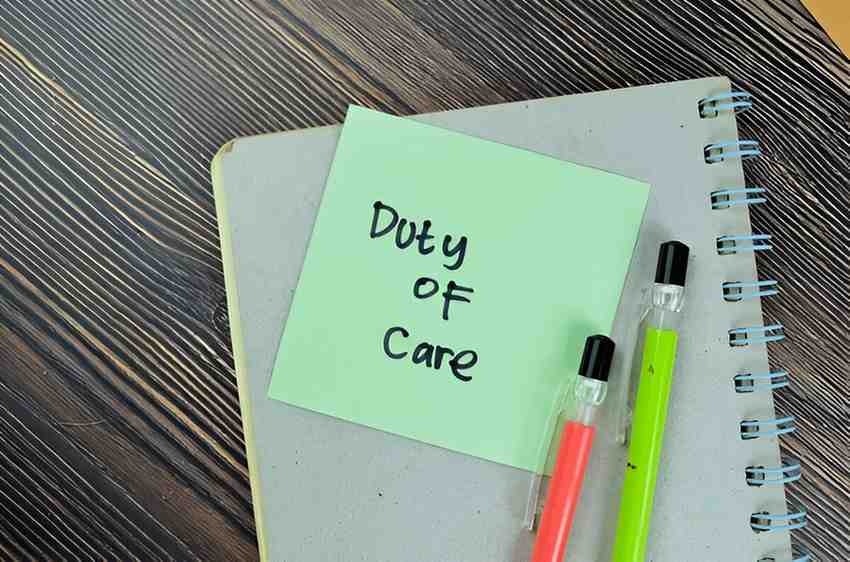Duty of Care is a legal and ethical obligation that individuals or entities have to act responsibly and prudently to avoid causing harm to others. This article explores what Duty of Care entails, its significance in various contexts, examples to illustrate its application, and how it applies in everyday situations.
Table of Contents
What is Duty of Care?
Definition
Duty of Care refers to the legal obligation of individuals or organizations to exercise reasonable caution and diligence while performing any actions that could foreseeably harm others. It requires acting in a manner that a prudent person would under similar circumstances to prevent harm.
Key Points about Duty of Care
- Legal and Ethical Obligation: Duty of Care is both a legal requirement under tort law and an ethical responsibility to prioritize the safety and well-being of others.
- Standard of Conduct: It sets a standard of conduct that individuals and organizations must adhere to, ensuring they do not expose others to unnecessary risks.
- Scope of Responsibility: Duty of Care varies based on the relationship between parties and the nature of the activity or service being provided.
Examples of Duty of Care
Example: Medical Professionals
- Scenario: A doctor has a Duty of Care towards their patients to provide competent medical treatment, maintain confidentiality, and disclose risks associated with procedures.
- Application: By adhering to medical standards, the doctor ensures patient safety and avoids potential harm or negligence claims.
Example: Employers
- Scenario: Employers have a Duty of Care towards employees to provide a safe work environment, adequate training, and necessary equipment to perform tasks safely.
- Application: Implementing workplace safety protocols, training programs, and ergonomic practices demonstrates compliance with Duty of Care obligations.
Importance of Duty of Care
1. Risk Mitigation
Compliance with Duty of Care reduces legal liabilities, mitigates risks of negligence claims, and fosters trust and confidence among stakeholders.
2. Ethical Standards
It upholds ethical standards by prioritizing the safety, welfare, and rights of individuals affected by actions or decisions.
3. Public Trust
Adhering to Duty of Care enhances reputation, credibility, and public trust, reflecting responsible conduct and commitment to societal well-being.
Duty of Care in Everyday Situations
1. Driving Responsibilities
Drivers have a Duty of Care to operate vehicles safely, follow traffic laws, and avoid behaviors that could endanger pedestrians or other motorists.
2. Childcare and Education
Educators and childcare providers have a Duty of Care towards children under their supervision, ensuring their safety, well-being, and appropriate supervision.
3. Consumer Protection
Manufacturers and sellers have a Duty of Care to produce and distribute safe products, provide accurate information, and warn consumers of potential risks.
Challenges in Duty of Care
1. Balancing Risks
Determining the extent of Duty of Care involves balancing risks, foreseeability of harm, and practicality in preventing potential injuries or damages.
2. Legal Interpretation
Courts interpret Duty of Care based on precedents, statutory laws, and specific circumstances, influencing liability and negligence claims.
3. Changing Standards
As societal norms and expectations evolve, Duty of Care standards may require adjustments to reflect new risks, technologies, or industry practices.
Conclusion
Duty of Care is a fundamental principle that guides responsible behavior and accountability across various professional, personal, and organizational settings. By understanding and fulfilling Duty of Care obligations, individuals and entities uphold legal requirements, ethical standards, and societal expectations to prevent harm and promote safety. Compliance with Duty of Care not only minimizes legal risks and liabilities but also fosters trust, credibility, and positive relationships with stakeholders. As individuals navigate daily responsibilities and organizations manage operational risks, prioritizing Duty of Care ensures prudent decision-making, risk mitigation, and a commitment to safeguarding the well-being of others. Embracing Duty of Care as a guiding principle supports a culture of safety, responsibility, and ethical integrity in both private and professional domains.





